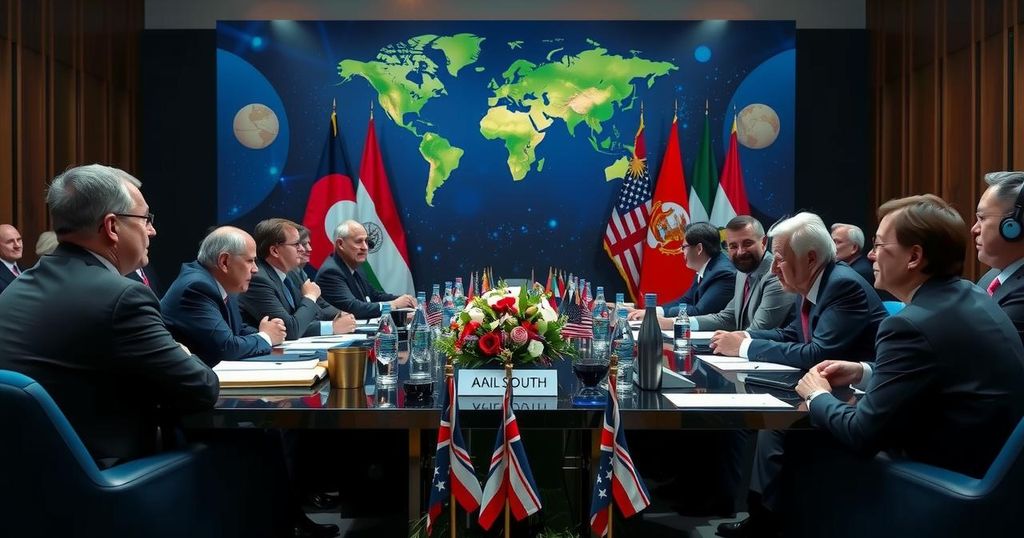G20 Summit Concludes With Focus on Global South Challenges

The G20 summit in Brazil focused on Global South priorities, emphasizing climate change, poverty reduction, and taxing billionaires, although it lacked strong references to Ukraine and Gaza conflicts, which the US had desired.
The recent G20 summit concluded in Brazil, where leaders from the world’s largest economies reiterated their commitment to addressing crucial issues faced by the Global South. During the two-day meeting, discussions centered on the pressing challenges of climate change, poverty alleviation, and the taxation of billionaires. Despite the emphasis on developing world priorities, the final communique, released following the summit, notably lacked strong statements regarding the ongoing conflicts in Ukraine and Gaza, which the United States had advocated for. The G20 summit, hosted in Rio de Janeiro, served as a critical platform for addressing the needs and concerns of developing nations. Leaders highlighted their dedication to supporting initiatives aimed at reducing poverty and combating climate change, recognizing that these challenges disproportionately impact the Global South. However, the absence of assertive language on geopolitical issues, such as the crises in Ukraine and Gaza, underscored the complexities and differing priorities among member states. As the G20 nations forge ahead, the decisions made at this summit will play a significant role in shaping international cooperation and policies that benefit developing countries. By prioritizing key issues like climate change and economic inequality, the leaders have set a hopeful agenda, albeit one that requires consistent follow-through and commitment from all parties involved.
The G20 Summit, involving the world’s 20 leading economies, is an essential forum for global economic governance. This year, the summit took place in Brazil and aimed to bring focus to the concerns of developing nations, often referred to as the Global South. Topics such as climate change and poverty reduction are of paramount importance to these regions, which face unique challenges compared to more developed countries. The summit also reflects the growing significance of equitable economic policies, including discussions on taxing extreme wealth, a matter gaining traction in global discourse amid rising economic inequality.
The G20 summit has reaffirmed its commitment to the priorities of the Global South, particularly regarding climate action and poverty alleviation. While the final statements emphasized essential issues for developing countries, the omission of firm language regarding Ukraine and Gaza indicates the challenge of achieving consensus among diverse member states. The outcomes highlight a pivotal moment in international relations, aiming for more equitable global policies moving forward.
Original Source: www.voanews.com








